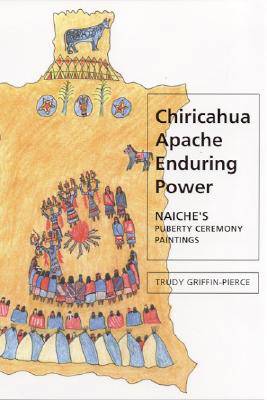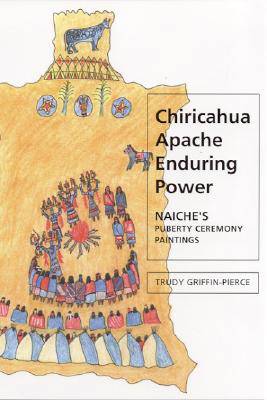
- Retrait gratuit dans votre magasin Club
- 7.000.000 titres dans notre catalogue
- Payer en toute sécurité
- Toujours un magasin près de chez vous
- Retrait gratuit dans votre magasin Club
- 7.000.0000 titres dans notre catalogue
- Payer en toute sécurité
- Toujours un magasin près de chez vous
Chiricahua Apache Enduring Power
Naiche's Puberty Ceremony Paintings
Trudy Griffin-Pierce
Livre relié
94,95 €
+ 189 points
Description
Reveals the conflicting meanings of power held by the federal government and the Chiricahua Apaches throughout their history of interaction. This narrative is a tribute to the Chiricahua people, who survive, despite military efforts to annihilate them, government efforts to subjugate them, and social efforts to destroy their language and culture.
Spécifications
Parties prenantes
- Auteur(s) :
- Editeur:
Contenu
- Nombre de pages :
- 240
Caractéristiques
- EAN:
- 9780817315443
- Date de parution :
- 01-12-06
- Format:
- Livre relié

Les avis
Nous publions uniquement les avis qui respectent les conditions requises. Consultez nos conditions pour les avis.






